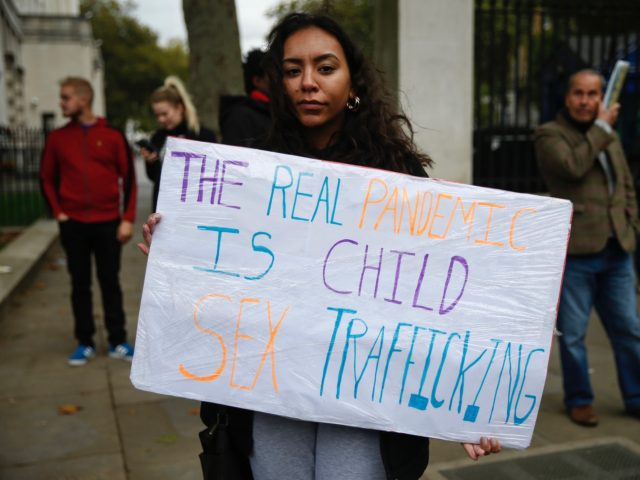There are up to 850,000 people who pose a sexual risk to children in Britain, according to a report from the United Kingdom’s equivalent to the FBI, the National Crime Agency (NCA).
The 2021 National Strategic Assessment of Serious and Organised Crime published by the NCA on Tuesday claimed that between 550,000 and 850,000 people in the UK “pose varying forms of sexual risk to children.”
The report said that criminals are increasingly using the internet to prey on child victims in the UK, which the agency warned leads to real-world exploitation.
“Online exploitation has been shown to enable offending in the real world, with the online grooming of children leading to physical abuse and the large scale blackmailing of children to abuse themselves,” the NCA said, adding: “the child sexual abuse threat continues to grow, exacerbated by rising online activity.”
The report went on to say that the agency has stepped up its efforts to safeguard children, saying that in the first nine months of the 2020/21 reporting period, they made over 7,000 arrests and protected nearly 10,000 children from predators.
This included David Wilson, who targeted over 5,000 young boys on the internet worldwide, landing him a jail sentence of 25 years in February of this year.
The Director-General of the National Crime Agency, Dame Lynne Owens said: “Over the next year the NCA will continue to adapt: embracing ever stronger collaboration with partners, employing innovative approaches to intelligence collection and deploying our full range of capabilities to disrupt high-harm criminality impacting on the UK.
“But while the NCA will continue to lead the fight to cut serious and organised crime, it is imperative that technology and social media companies match this intensity, building in safety by design and closing down all avenues for offenders to exploit their platforms. In particular, we must move to a place of zero tolerance for the presence of such material online in order to raise the bar to offending and, most importantly, protect children.”
Today we have published the 2021 National Strategic Assessment of Serious and Organised Crime – our most comprehensive review of the threat, how it has evolved and our response.
Full Story ➡️ https://t.co/tdHRJEUr20 pic.twitter.com/KqN5egkDbU
— National Crime Agency (NCA) (@NCA_UK) May 25, 2021
In March of last year, a report from the European Union Agency for Law Enforcement Cooperation (Europol) claimed that predators would use the coronavirus pandemic to ramp up their attempts to groom children online because of the increased time spent on computers amid school closures.
Europol said at the time that investigations strongly indicated “increased online activity by those seeking child abuse material”.
Police forces in Britain have faced widespread backlash from the public over their failures to tackle the scourge of mostly Muslim grooming gangs, who have been found to have preyed on children throughout the country for decades.
In January of 2020, for example, a report from the Independent Office for Police Conduct (IOPC) revealed that police in Rotherham overlooked abuse against children committed by members of “Asian” rape gangs for decades out of fear of stoking racial tensions in the area.
The IOPC report claimed that a chief inspector in the Rotheram police force told a father of a missing girl that the city “would erupt” should the public become aware that “Asian” grooming gangs were sexually abusing young white girls.
A report commissioned by the Mayor of Greater Manchester released just weeks later said that officers in the city were told to focus on “other ethnicities” while a group of 97 men of South Asian heritage were left free to sexually exploit young girls.
Last month, Maggie Oliver, a former police detective turned grooming gang whistleblower, blamed the “institutional cowardice” of the courts and police forces for the leniency witnessed in the targeting and sentencing of the rape gangs in the UK.
Oliver said that victims “were let down by the state when the grooming first occurred, and they are still being let down by officialdom’s refusal to uphold the law, keep them informed or respect their human rights.”
38 Suspected Online Grooming Paedophiles Arrested in London https://t.co/LVQTXoSdV1
— Breitbart London (@BreitbartLondon) May 27, 2020
Follow Kurt Zindulka on Twitter here @KurtZindulka

COMMENTS
Please let us know if you're having issues with commenting.